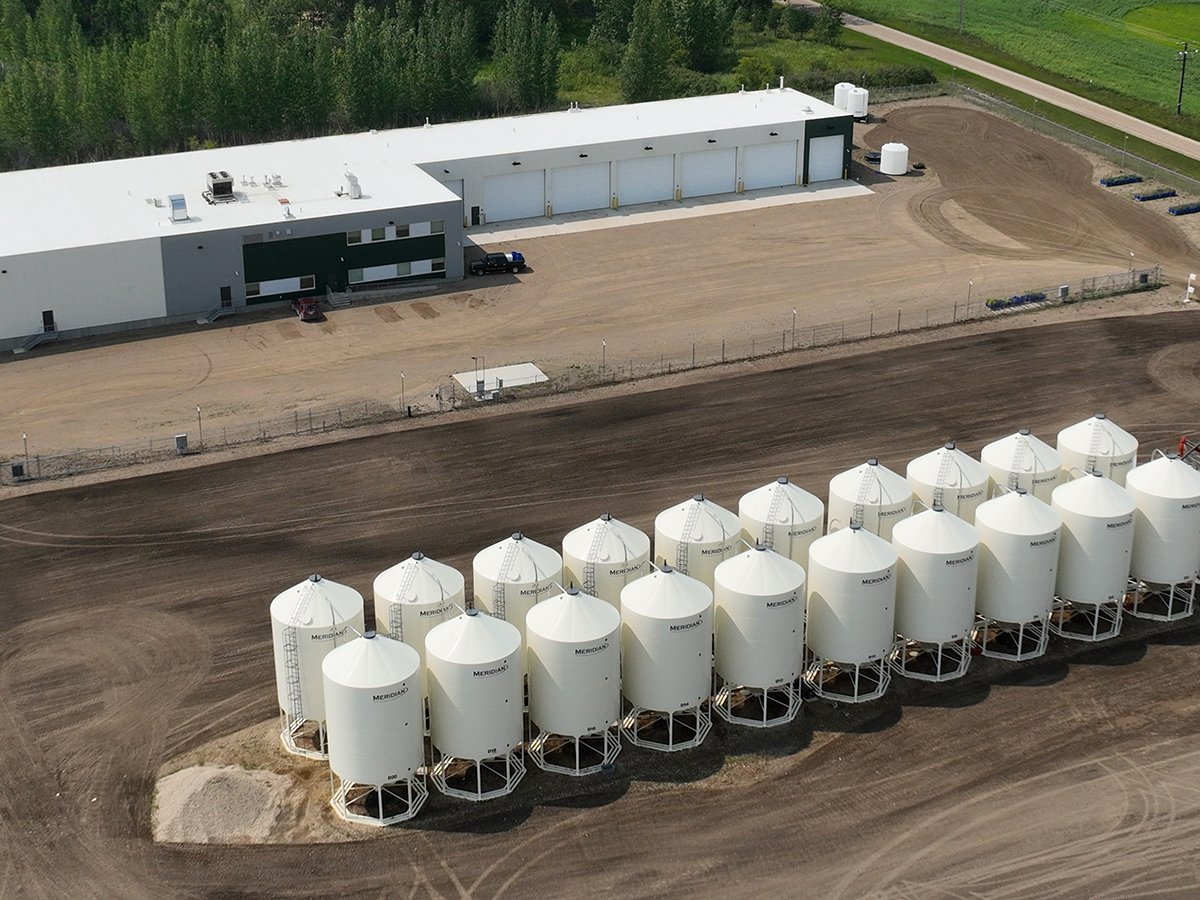BARCELONA, Spain (Thomson Reuters Foundation) — Climate change is threatening agricultural growth, productivity, prices and a new global goal to end hunger by 2030, says a new report released by the International Food Policy Research Institute.
For example, it is projected to cut per capita consumption of cereals in the Philippines by 24 percent and fruits and vegetables by 13 percent, increasing the number of people at risk of hunger by 1.4 million in 2030 and 2.5 million by 2050, the institute said.
As a result, it is surprising that the world “agriculture” does not appear once in the text of the new global agreement to tackle climate change recently adopted in Paris.
Read Also

Saskatchewan firm aims to fix soil with compost pellets
In his business, Humaterra, Leon Pratchler is helping farmers maximize yields in the weakest areas of their fields through the use of a compost pellet.
A key reason for this is that developing nations long resisted including agriculture in the climate negotiations, fearing efforts to feed their people would be compromised by pressure to reduce planet-warming emissions from farms.
A 2015 study from the United Nations’ Food and Agriculture Organization found that emissions from agriculture are growing, accounting for 11 percent of the global total in 2010.
The Paris climate agreement refers only indirectly to agriculture in terms of making sure people have enough to eat.
Its non-binding introduction recognizes “the fundamental priority of safeguarding food security and ending hunger, and the particular vulnerabilities of food production systems to the adverse impacts of climate change.”
The binding part of the deal states that boosting the world’s ability to adapt to those impacts and foster climate resilience and low-emissions development should be done “in a manner that does not threaten food production.”
However, the FAO welcomed the agreement despite the politics that largely excluded agriculture, noting that it was the first time that food security was included in a global climate change accord.
“This is a game changer for the 800 million people still suffering from chronic hunger and for 80 percent of the world’s poor who live in rural areas and earn income — and feed their families — from agriculture,” FAO director-general José Grazing da Silva said after the deal was reached.
“By including food security, the international community fully acknowledges that urgent attention is needed to preserve the well-being and future of those who are on the frontline of climate change threats,” he added.
Others in the agricultural research community and agencies working with small farmers highlighted the widespread inclusion of agricultural policies in the nearly 190 national action plans submitted to the UN as a basis for the climate deal.
Analysis by the CGIAR Research Programme on Climate Change, Agriculture and Food Security (CCAFS) shows agriculture is discussed in 80 percent of those plans, which is seen as a signal that addressing agriculture in the context of climate change is a priority.
Kanayo F. Nwanze, president of the International Fund for Agricultural Development (IFAD), said this was a good springboard for approaching top decision makers in developing countries about protecting their farmers from climate change.
IFAD said technical interventions, such as hardier seeds and accurate weather forecasts, are not enough to help small farmers cope and must be backed up by national strategies, laws and budgets.
One major barrier to helping small-scale farmers adapt to extreme weather and reduce emissions from their activities is insufficient money for research and action on the ground, experts noted.
The CCAFS study of national climate plans found the 48 least developed countries will need funding of $5 billion per year: $3 billion for adaptation and $2 billion for reducing farm emissions.
It is much higher than current commitments to climate funds for agriculture and at least 10 percent more per year than multilateral climate funds spent on agricultural projects in the last decade, it said.
“Climate finance needs to include agriculture as a key sector and support countries to implement the plans they have laid out,” said CCAFS director Bruce Campbell.














